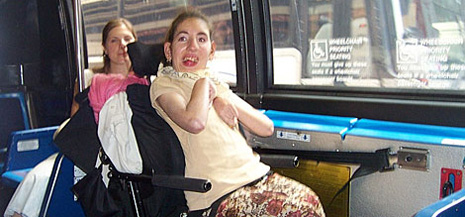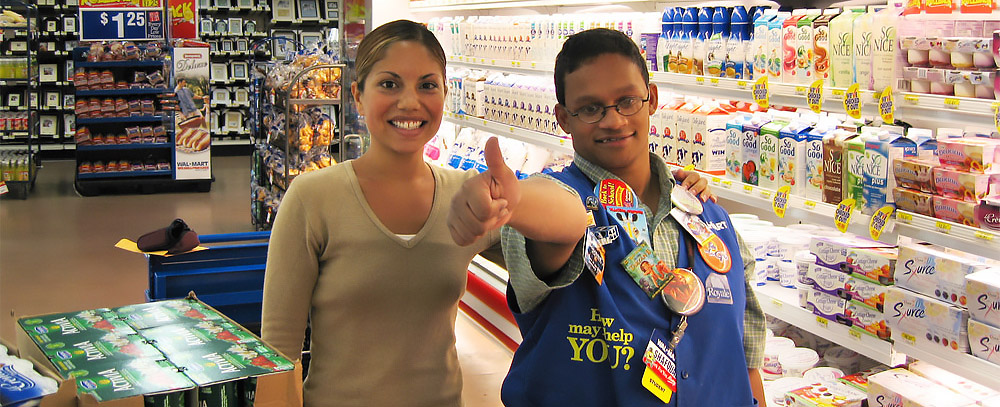
You may remember the saying, “Rules are meant to be broken.” Although we all break rules from time to time, most people realize that rules are meant to protect us. For example, if we ignored the “rules of the road”, there would be a lot of accidents and injuries. In order to make sure that we follow these rules, there are consequences for breaking them.
We create rules to keep children safe and prevent them from doing things that disturb or harm themselves, other people, or property. Young children need to learn why rules are important and what will happen if they break a rule. When rules are enforced in a firm, kind, and consistent manner, children learn that they are responsible for their behaviour.
As a parent, teacher or early childhood professional, it can be frustrating when your child does not follow the rules, especially if it seems like she is breaking them on purpose. You can help your child behave in a positive way by creating rules that are easy for her to understand, follow, and remember. When your child does break the rules that you have established, the consequences used need to guide and teach rather than shame or humiliate her into behaving “properly”.
Why Children Break Rules
Children break rules for many different reasons. Here are some examples:
- There are too many rules for them to remember.
- They do not understand the rules.
- They are not motivated to follow the rules.
- They cannot see or hear the rules.
- They need help to do what is being asked.
As you can see, children who break rules are not always misbehaving on purpose. The suggestions in the next section can help you create rules that will help your child or children understand what is expected.
Creating Rules that your child can follow
Keep it Simple
Young children respond best to a few simple rules that are clear and specific. When you have too many rules your child will have difficulty learning and remembering them. This will then make it more challenging for you to teach and reinforce the rules.
Try not to give your child more than three to four rules at once. Also, provide simple reasons for each rule to help her understand why each one is important. It is a good idea to post pictures illustrating your rules where your child can see them. Some typical rules you can display might be:
- Use a “quiet voice” when we’re inside.
- Walk inside the house/building.
- Sit at the table to eat your lunch.
Remember to consider the following when setting rules for your child:
- Make sure the rules are age and developmentally appropriate. For example, a rule for a six year old may be “Tidy up when you’re finished playing with your toys”. A more age appropriate example for a three year old may be simpler and more specific, such as “Put blocks in the bin when you’re finished playing”.
- Make sure that the rules you establish are ones that you, yourself will follow, to set an example for your child. For instance, if your rule is: “The computer stays off while we eat our lunch.”, then make sure your child doesn’t catch you sitting in front of the computer eating your lunch.
- Expect that at times your child will forget the rule. Be supportive in reminding them and follow through on your expectation. For example, if your rule is “Clean up when you finish eating”, and they forget to do this, provide them with a gentle verbal reminder, visual cue, or gesture such as lifting the plate, to assist with following through.
- Be very consistent in applying the rules so your child will get the message that you mean what you say and this rule is here to stay!
- It is also important to try and link the rules at home and school. That way the rules are more consistent and less confusing.
Be Positive
Most young children like praise and want to please the important people in their lives. Telling and showing your child what they can do is more effective than telling them what not to do. Whenever you tell your child is not to do something, show them a more positive behaviour. For example, if they are hitting their friend, remind her, “Touch gently – hitting hurts,” and then show them how to touch gently perhaps by patting your hand. Praise them for listening and behaving positively.
Here’s another example. James and Vicky are playing in the sandbox. Vicky is poking James’ sand castle and trying to make it fall down. Vicky’s mother/teacher takes her hand and says, “Hands are for helping,” while guiding her to push sand over to James. Later, Vicky’s mom/teacher sees her helping James and says, “I like how you are helping James build the castle.”
Use Pictures
Create visual “reminders” to encourage your child to behave positively. You can display a picture reminding your child what to do. Take pictures of your child doing the “right” thing or use. Pictures of favourite cartoon characters doing positive things can also be used.
Let’s look at the example of Malik and his friend Malcolm. Malik grabs toys from Malcolm when he wants to play with them. Both children like the cartoon character “Barney”, so their father/teacher put a poster of Barney sharing with friends on their bedroom wall. When Malik begins to grab toys from Malcolm, their father/teacher points to the “Barney” poster and reminds Malik to, “Share”.
Use Gestures
Gestures are useful because they can remind a child of the rules without drawing attention to or singling them out. Get your child’s attention by making eye contact with them, calling their name, or touching them on the arm or shoulder. Gestures can also be combined with spoken words if it is difficult to get your child’s attention. Remind your child what to do by pairing, or replacing the following sentences with gestures:
- “Sit.”Tap the floor or the seat of the chair you want your child to sit in. Make a downwards motion with your hand.
- “Wait!”Put your hand up like a stop sign.
- “Quiet,” or “Talk softly.” Put a finger in front of your lips or make a downwards motion with your hands.
- “Listen.”Point to your ears.
- “No!”If you see that your child is about to do something that she shouldn’t be doing, simply shake your head.
Don’t forget that gestures can also be used to give praise! Smile, nod, or give your child the “thumbs up” when you “catch” her being good.
When Children Break Rules
There will be times when your child breaks rules “on purpose”. This behaviour is typical. Young children often want to “test” adults to see how much they can “get away with”. When you create a rule for your child, think about what you can do if she breaks it. This is helpful because it is sometimes difficult to think “on the spot” when your child is in the middle of a tantrum.
Here are some steps you can take when your child misbehaves:
- Let your child know that their behaviour is not acceptable.Let your child know what behaviour you want them to stop and why it cannot continue. If your child is doing something that can hurt herself or another person, physically remove them from the situation right away.
- If necessary, remove them from the situation until they calm down.If your child is very upset, they will not be able to understand what you are telling them to do. Give them some time to cry or have a tantrum in a place where you can keep an eye on them.
- Remind them of a more positive behaviour.Let your child know what they can do in the future and encourage them to apologize, repair any damage, or clean up. Praise your child when they follow the rules.
Here is a home based example of the steps in action:
Grandma is looking after Ravi and his older sister Nisha. Ravi and Nisha are on the floor building with blocks while Grandma is sitting nearby watching them play. Ravi begins throwing and kicking blocks. Grandma stops Ravi by taking his hand and saying, “No throwing. Blocks hurt.” Ravi begins to scream and cry as Grandma leads him away from the blocks. When he has calmed down, Grandma says, “Let’s tidy up the blocks.” Ravi helps put some of the blocks away while Nisha continues to play. Grandma praises Ravi for tidying up and then offers him two new activities to choose from that he can play.
If you feel that your child’s behaviour is dangerous, or difficult to control, please contact a professional. Speak with other people involved in your child’s life; discuss the problem and what steps to take next.
With rules in place that are easy for everyone to understand and follow, children will come to know what is expected of them.



